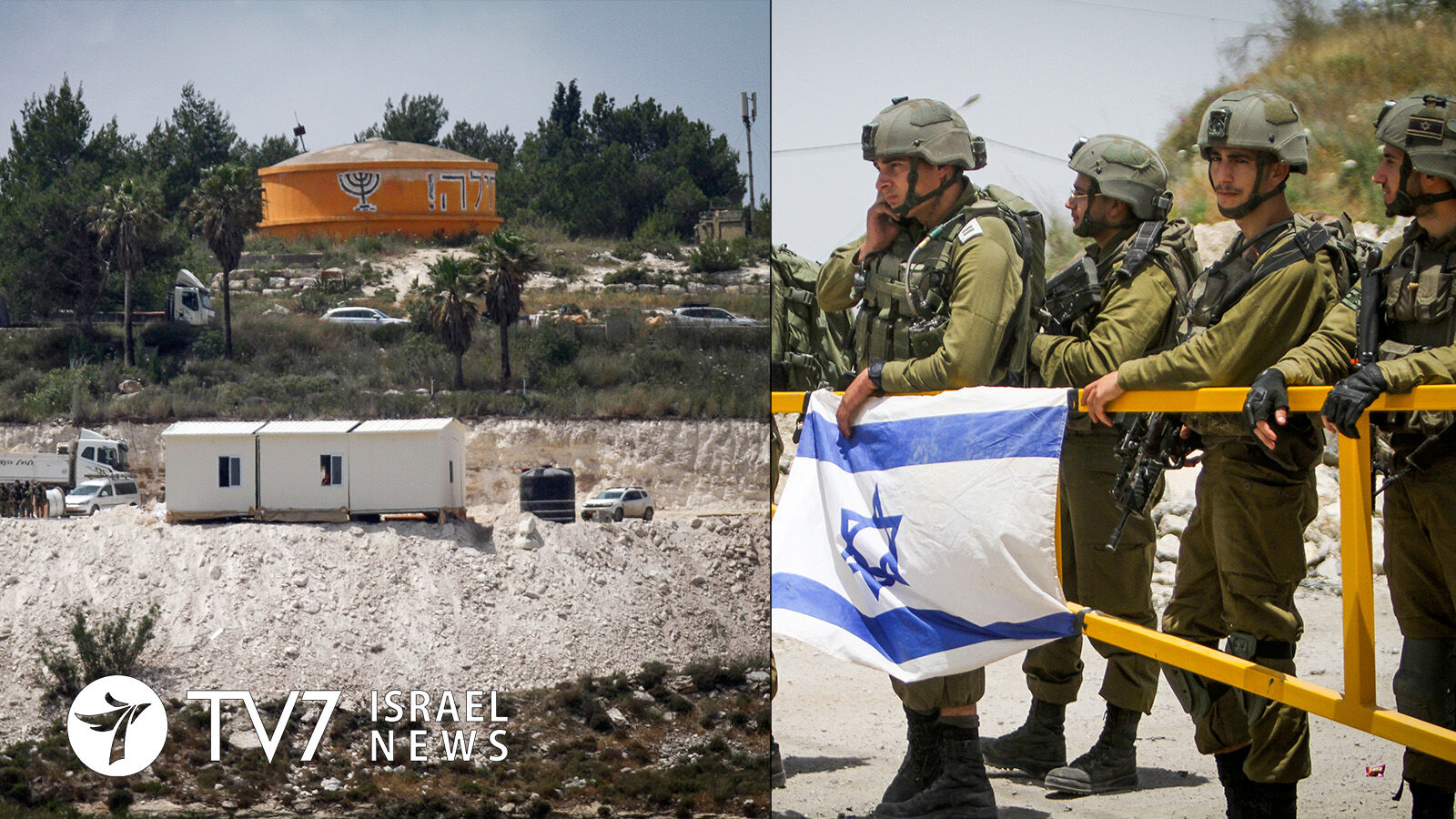The inauguration of a new Jewish religious seminary took place in Homesh.
By Erin Viner
The former settlement was evacuated and dismantled along with three others in the northern West Bank (Samaria) as part of Israel’s unilateral disengagement from Gaza 18 years ago.
Under the leadership of then-Prime Minister Ariel Sharon, Israel evicted 70 families from Homesh, 105 residents of Sa-Nur and hundreds of others from Ganim and Kadim in August-September 2005, along with 8,000 Jewish settlers from 21 settlements in Gaza.
Homesh recently regained legal status after Israeli lawmakers amended the law that ordered its dismantlement.
“At long last, it’s an historic moment. We are only a few steps away from righting the terrible injustice and the Homesh expulsion. Since the terrible day of expulsion, not a moment has passed when we stopped dreaming and fighting and breathing this battle, to right this injustice, not only for those who were expelled but also to the Land of Israel and to all the people of Israel. Two months ago, the Israeli government and parliament removed the Mark of Cain from the state’s book of laws and now we are putting this into action on the ground and moving the yeshiva to its permanent location,” said Samaria Regional Council Head Yossi Dagan after recitation of a Jewish benediction at the inauguration.
“With God’s help we will also get to Sa-Nur, Ganim and Kadim and there will be many more new settlements in northern Samaria,” declared.
The new school was moved off privately owned Palestinian land to a new spot on the same hilltop around 150 meters away.
Palestinian President Mahmoud Abbas has demanded removal of all Jews from Homesh.
“Statements of condemnation are no longer enough in the face of the (Israeli) extremist right-wing government,” said his spokesman Nabil Abu Rudeineh.
“Everything that’s happening supports the building and expansion of illegal settlements. It is against all international laws and the decisions of the Security Council at the United Nations, especially (Resolution) 2334, the latest decision which emphasizes that the settlements are illegal including their expansion in Jerusalem.” complained Wasel Abu Yousef, who has led the Palestine Liberation Front (PLF) since 2007 and was elected to the Executive Committee of the Palestinian Liberation Organization’s (PLO) in 2018.
UNSC Resolution 2334 defined all Israeli construction on lands captured after the 1967 Middle East war as illegal – including the West Bank and east Jerusalem. It was adopted in 2016 with support from member states including France, the United Kingdom and Ukraine. In a major departure from historic policy just four weeks before leaving office, the administration of former United States President Barack Obama refused to exercise veto power to favor its ally Israel and instead abstained from the vote.
The Biden White House is “deeply troubled” by the recent Israeli governmental order that allowed citizens to “establish a permanent presence in the Homesh outpost in the northern West Bank, which, according to Israeli law, was illegally built on private Palestinian land,” said US State Department Spokesperson Matthew Miller.
“This order is inconsistent with both former Prime Minister Sharon’s written commitment to the (US President George W.) Bush administration in 2004 and, significantly, the current Israeli government’s commitments to the (President Joe) Biden administration,” said the State Department Spokesman, adding that, “the expansion of settlements undermines the geographic viability of a Two-State solution. It exacerbates tensions, it further harms trust between the two parties, and that is consistent with the views of previous administrations, both Democratic and Republican.”
US-led peace talks aimed at the creation of a Palestinian state in the West Bank and Gaza with the eastern side of Jerusalem as its capital broke down in 2014 and show little sign of revival amid an escalation of Palestinian violence over the past year.
Most countries deem Israel’s “settlements” in the biblical territories as illegal, which Israel disputes.
Israeli Prime Minister Benjamin Netanyahu has stated that his government has no intention to build any new communities, although members of his nationalist-religious coalition have vowed to bolster existing ones.
Spokespeople for Netanyahu, Defense Minister Yoav Gallant and Finance Minister Bezalel Smotrich did not immediately respond to requests for comment on whether any of them had authorized the establishment of the new Homesh seminary.
“I think there are times when it’s preferable to talk less and do more,” Smotrich told reporters at a meeting of his pro-settler Religious Zionism party, when asked who was behind the decision on Homesh. Last week, the Finance Minister – who holds some West Bank powers – said Homesh had been officially added to settlement council land in order to work out a new building plan for the Jewish religious school.
